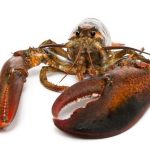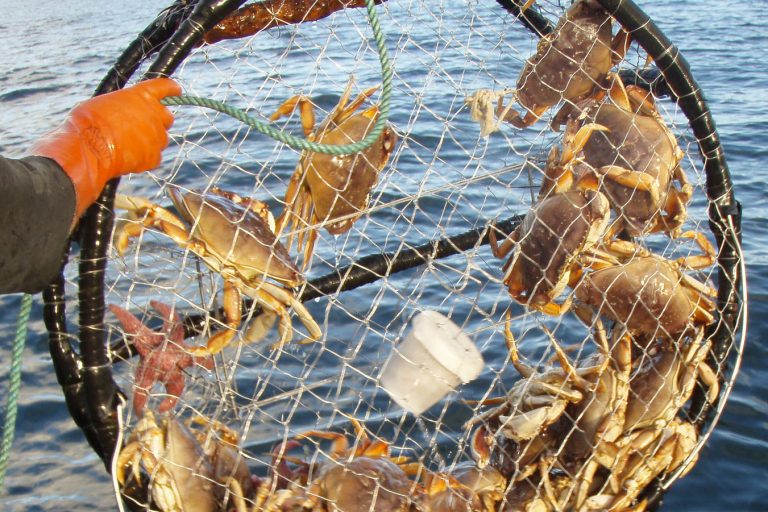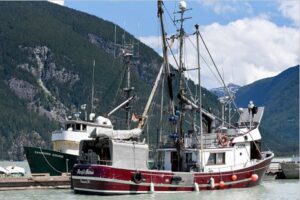Tag Archives: direct sales
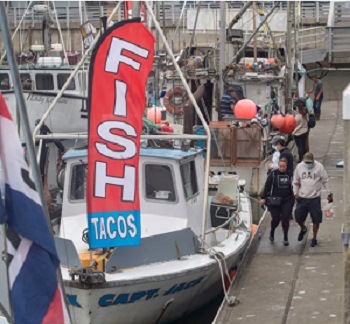
Locally sourced seafood attracting crowds to the fishing boats in Half Moon Bay
Commercial trawlers pan for bottom-feeders at least three miles from shore. Purse-seiners use nets closer to the surface, while traditionalists fish the way the Egyptians did with hooks and lines. Nothing causes a bigger commotion than Dungeness crab in late fall, when eager customers line the docks like going to the DMV. The crustacean has joined turkeys as a Bay Area staple of the holiday dinner table. “All the crab pots are like little money banks that you just pull up and dump out the money,” Hassan said. Weekend dock sales have become integral to survival for anglers like Hassan. Smaller boats don’t catch enough to supply wholesalers, so they bypass the supply chain for direct sales. >click to read< 13:31
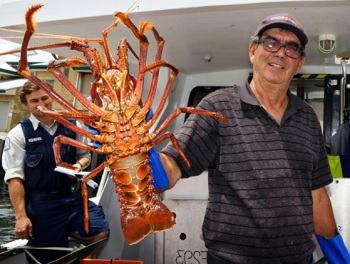
Australian Lobster Sector Claws Back Trade After China Ban
Australia’s rock lobster exports are worth half a billion US dollars a year — and in normal times, 94 percent of them go to China. But all that changed a few weeks ago, when Beijing imposed a near-total import ban on lobster, part of a broader politically charged “shadow trade war”. “It has affected us drastically,” third-generation fisherman Fedele Camarda told AFP. “Our income has been reduced considerably.”,,, local authorities recently changed legislation to allow commercial rock lobster fishers to sell large quantities from the back of their boats,,, >click to read< 10:40
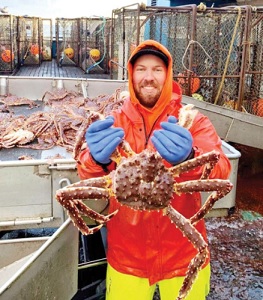
Bering Sea red king crab in high demand
Gabriel Prout, owner of Alibi Seafoods and part-owner of the F/V Silver Spray, brought 175 king crab totaling 1,000 pounds to the docks last week, which he and his crew had caught in the Bering Sea. After the F/V Silver Spray delivered their 28,000-pound quota of crab to a seafood processor, they were free to deliver the extra unblocked quota to whomever they wanted. Cars lined up for the next six hours until the crab sold out. Prout, who owns and operates the Silver Spray with his family and a friend, brought back triple the amount of crab as last year to sell at the docks. >click to read< 09:43
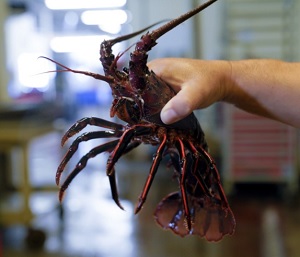
California Lobster season debuts amid changing seafood industry
It’s California spiny lobster season, from October through mid-March. Local fishermen and seafood retailers are celebrating its arrival, announcing the happy news that prices are the lowest in many years and the supply plentiful. What’s changed? In recent years, more than 95 percent of these well-loved California crustaceans were shipped to China, leaving only high-priced, limited quantities for local consumption. Rumors circulated that some fishermen were contemplating suspending operations, discouraged by their lost markets. Then, just as quickly, attitudes changed, as reality sank in. “People have to eat. If we don’t fish, what are people going to eat?” >click to read< 09:40
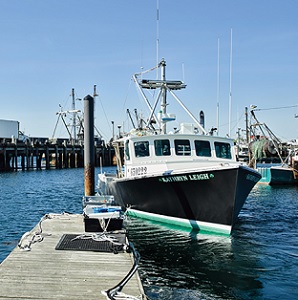
How Coronavirus Has Changed Business for Gloucester Fishermen
Gloucester has been a fishing town since its founding in the early 1620s, and the industry was the backbone of the local economy well into the 20th century. In recent decades, however, the industry has struggled as it grapples with regulations designed to prevent over-fishing and limit environmental damages. Many fishermen with long family histories in the business have had to turn to new professions, and the city’s fishing fleet has declined significantly since its peak. When the COVID-19 pandemic emerged, the situation became even worse. Government mandates and public health recommendations closed the doors of many restaurants, where the vast majority of the seafood consumed in the United States is eaten. In 2017, about 68 percent of the money Americans spent on seafood—some $70 billion—was at restaurants, according to a report from the National Oceanic and Atmospheric Administration. >click to read< 10:11

Fisherman’s Wharf: Restaurant threatens commercial fishing operation’s survival over a parking lot conflict
The parking area at Pier 47 could be used for al fresco dining as soon as next week but that space is where Giuseppe Pennisi, of Pioneer Seafoods, has been selling fresh-caught fish right off his boat for years. Now, the Port of San Francisco has ordered him to stop. “They said our business was causing problems for Scoma‘s but there’s no one even down here anymore except for people buying a few fish,” Pennisi said. Scoma’s owner Tom Creeden says they’ve submitted plans to Port of San Francisco officials to use the parking space for outdoor dining. Pioneer Seafoods will have to shut down its operations by June 15 after being given less than five days notice. It would also be a blow to Glide Memorial Church in San Francisco, which receives 3,000 pounds of fish from Pennisi every two weeks to feed the homeless. >video, click to read< 08:37
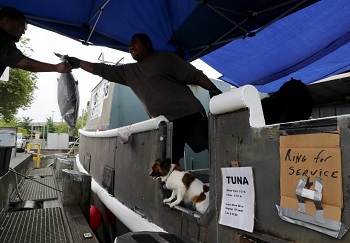
‘Baboom!’ St. Jude returns with 48 tons of tuna and no restaurant market thanks to coronavirus so they are selling it at Seattle’s docks
When the tuna boat St. Jude motored out of Anacortes in November for fishing grounds 5,000 miles away in the South Pacific, few people outside of microbiology labs had ever heard the word “coronavirus.” By the time the 95-foot vessel docked in Seattle this month, the microbe had shaken the entire world and turned the seafood business upside down. “Baboom!” said owner and captain Joe Malley, who returned from the six-month voyage to find the primary market for his high-quality albacore had vanished. “Who could have anticipated this?” >click to read< 11:19
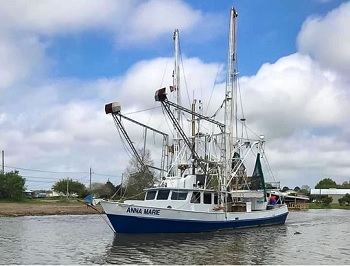
‘Another punch in the gut’: Gulf Coast shrimpers navigate the coronavirus crisis
Shrimping is a hard business. Gulf Coast shrimpers, who bring in three quarters of the nation’s catch, have been battered with waves of bad luck. Hurricanes. A flood of cheap imports. The BP Deepwater Horizon oil spill in 2010. Fresh water diversions that kill seafood. And now the coronavirus. Restaurants buy 80% of both imported and domestic shrimp, according to the Southern Shrimp Alliance. With restaurants closed or offering only takeout, no one is buying much shrimp. Next month would typically launch the peak of shrimp season as Gulf states begin their annual opening of nearshore waters to shrimping. >click to read< 07:45
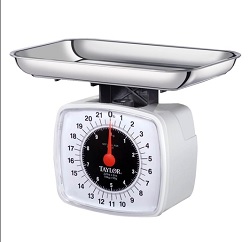
City of Morro Bay will allow fishermen to sell directly from boats starting May 1
“We have about 90 active boats fishing commercially,”,,”If the restaurants and the state doesn’t reopen, the fishermen are going to have to sell directly off their boat to the consumer,”. The City of Morro Bay has already approved for that to happen starting May 1, as long as social distancing is maintained. As of May 1, anyone will be able to buy whole salmon, rock fish and crab from the commercial fishing boats docked in Morro Bay Harbor. The fish will be sold whole, not filleted. Hafer says to look for signs in the harbor and along the Embarcadero directing you to the boats selling fish. Also, remember to bring an ice chest and plenty of ice. >click to read< 08:43
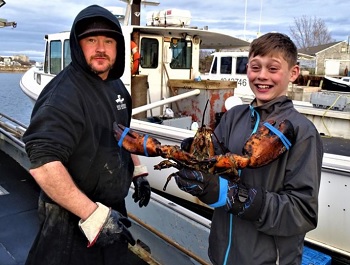
Coronavirus: NH lobstermen trying to keep afloat relying more on direct sales to the public
Andy Konchek has his own lobster boat and works as a deckhand for Capt. John Borden on the Mary Baker. They fish in federal waters and typically sell their catch to Kittery Trading Post in Maine, which was deemed “non-essential” and closed last week. Konchek said they have hauled in 300 of their traps because of the loss in sales. They are still going out for a limited catch and selling lobsters and Jonah crabs directly to customers from Pierce Island in Portsmouth to keep afloat financially. Brian Tarbell of Dover was one of Konchek and Borden’s customers last week. He said local fishermen need support now more than ever. >click to read< 08:56
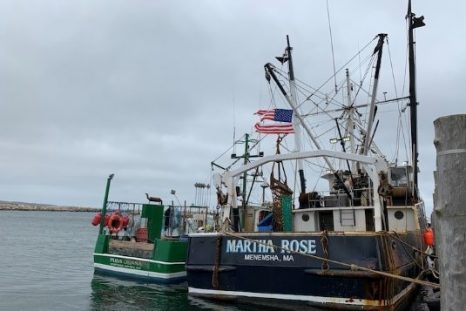
Menemsha goes old school on a Saturday morning. 500 pounds of scallops sell in two hours off F/V Martha Rose
Wes Brighton’s 77-foot scalloper, Martha Rose, is bringing sea scallops to its home port of Menemsha in a new way — straight off the boat with no intermediary. Saturday morning the vessel sold 500 pounds of scallops in two hours. Brighton had intended to offer scallops from 9 am to 1 pm but by 11 am, his hold was empty. The scallops were sold at $18 per one pound bag or $75 for a five pound box. Check, Venmo, or cash was accepted. >click to read< 07:00

































